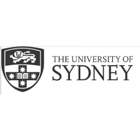Hone your analytical skills. Become an independent thinker. Form and articulate judgements based on argument and evidence. Lead the way. With arts and humanities at the University of Sydney consistently recognised as among the top 30 faculties globally in university rankings, our Bachelor of Arts degree is both highly regarded by academic leaders and highly sought after by industry employers. Offering access to more than 45 subject areas in the humanities and social sciences, no two arts degrees are the same at Sydney, which means you’ll graduate with a unique skillset and career options as varied as the degree itself. Whether you want to learn a new language or study a new culture, explore great books, ideas or minds, discover the past, analyse the present or consider the shape of the world's future, the Bachelor of Arts will expand your horizons and challenge you to think outside the box.
Analyse the concepts that people and communities prioritise in their lives to explain their existence, including religions, philosophies, life-justifications, and popular mythologies. You will be introduced to a range of methodologies including sociology, anthropology, cultural studies, philosophy, textual studies and history. You will study the essence of what it means to be human and will examine how dramatic narratives and powerful inner experiences propel both the individual and social constructions of reality. The Studies in Religion major allows you to investigate the ways in which humans have ascribed value to their lives, societies, and other important ideals from family to nation, individuality, and the afterlife. You will get to examine how these values and aspirations have been formalised into communal structures and powerful institutions throughout all of human history. Equipped with the necessary skills in critical thinking, you will be able to understand and interrogate the central role of religion—overtly and covertly—in broader socio-cultural practices. You will also develop a critical awareness of the skills used in the academy to assess the narrative, ethical, legal, and institutional aspects of religion we use to keep our societies functioning and which we call sacred.






